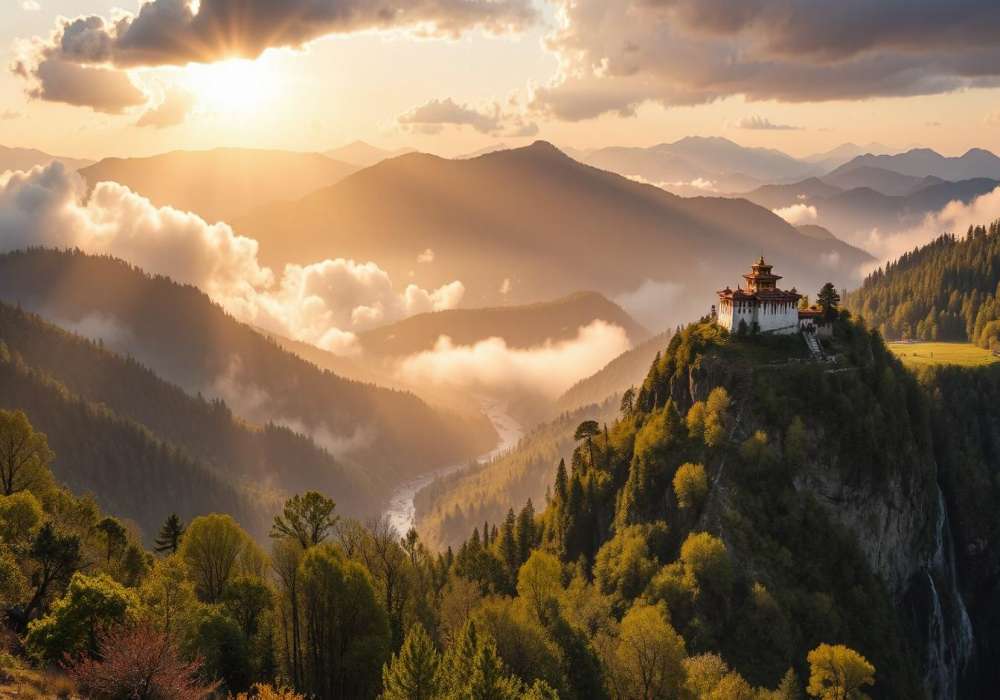
Last Updated At: 18-Aug-2025
10 Famous National Parks in Bhutan Must Visit In 2025
Bhutan has some magnificent national parks that perfectly capture the unspoiled natural beauty of the land. Various ecosystems, from lush forests to snow-capped peaks, are found in these parks, including Jigme Dorji National Park and Royal Manas National Park. There are eco-friendly accommodations near Bhutan's national parks. They serve as crucial conservation sites since they house rare and threatened animals like the Bengal tiger and snow leopard. Hiking trails in Bhutan national parks, witnessing rare creatures, and experiencing the nation's dedication to protecting its natural heritage for future generations allow visitors to fully experience Bhutan's vast biodiversity.
List of 10 National Parks in Bhutan
Bhutan's national parks are vital for conservation and offer stunning opportunities for eco-tourism and exploration. Here are some rare wildlife species in Bhutan's national parks mentioned below:-
- Jigme Dorji National Park | Towering Peaks and Pristine Lakes
- Royal Manas National Park | Captivating Wildlife in Forests
- Jigme Singye Wangchuck National Park | Alpine Beauty of Bhutan
- Bumdeling Wildlife Sanctuary | Bhutan is a Birdwatcher's Paradise
- Phibsoo Wildlife Sanctuary | Habitat Protection For a Variety of Species
- Sakteng Wildlife Sanctuary | Wonder of Nature in Eastern Bhutan
- Wangchuck Centennial Park | Glacial Vistas and Endangered Species
- Toorsa Strict Nature Reserve | Residence of the Elusive Bengal Tigers
- Khaling Wildlife Sanctuary | Bhutan Has a Rich Biodiversity
- Jigme Khesar Strict Nature Reserve | Rough Terrain and Remote Wilderness
1. Jigme Dorji National Park | Towering Peaks and Pristine Lakes
A nature lover would adore Bhutan's greatest protected region, Jigme Dorji National Park. It has a variety of scenery, from thick woods to rough alpine terrain and glacial lakes. The elusive snow leopard and Bengal tiger are just two of the many animals that call this park home. Visitors may experience the country's unspoiled wilderness, hike through pristine forests, and see rare creatures while learning about Bhutan's dedication to protecting its natural legacy.
- Major Highlights. Snow leopards, pristine landscapes, diverse flora, and rich biodiversity await explorers.
- Location. Gasa, Bhutan
Read More: Places To Visit In Bhutan
2. Royal Manas National Park | Captivating Wildlife in Forests
Royal Manas National Park is a magnificent wilderness area in southern Bhutan. It is a biodiversity hotspot with a vast 1,057 square kilometre area and is home to various plants and fauna. This park is home to Bengal tigers, Asian elephants, and endangered species like the golden langur, verdant woods, meandering rivers, and a wide diversity of wildlife. Bhutan's dedication to protecting its natural heritage is demonstrated through the Royal Manas National Park, which provides a haven for conservation initiatives and eco-tourism.
- Major Highlights. A national treasure for conservation, National Park is home to diverse species, appealing woods, and abundant biodiversity.
- Location. Gonphu, Bhutan
Read More: Things To Do In Bhutan
3. Jigme Singye Wangchuck National Park | Alpine Beauty of Bhutan
Bhutan's Jigme Singye Wangchuck National Park is a magnificent natural protection area. It is renowned for its various habitats, which range from deep forests to alpine meadows, and is named for the former King of Bhutan. This park safeguards the habitats of Himalayan black bears, takins, and other endangered species, including the red panda and snow leopard. Visitors may enjoy its picturesque splendour, making it an important location for Bhutan's eco-tourism and biodiversity preservation efforts.
- Major Highlights. Beautiful vistas, varied ecosystems, and crucial habitats for endangered species are all featured in national parks.
- Location. National Park, Bhutan
Read More: Places To Visit In Bhutan
4. Bumdeling Wildlife Sanctuary | Bhutan is a Birdwatcher's Paradise
Bumdeling Wildlife Sanctuary, located in northeastern Bhutan, is a haven for nature lovers. As a vital wintering area for these graceful birds, it is essential to preserve this species. The sanctuary is a mesmerising location for ecotourists and anyone looking for an immersive experience in Bhutan's natural heritage because of its rocky terrain, lush woods, and alpine meadows.
- Major Highlights. Black-necked cranes depend on Wildlife Sanctuary as a critical wintering location.
- Location. Trashiyangtse, Bhutan
5. Phibsoo Wildlife Sanctuary | Habitat Protection For a Variety of Species
The Phibsoo Wildlife Sanctuary is located in Bhutan and is renowned for its astounding biodiversity. Bengal tigers, leopards, and several bird species all find refuge in this sanctuary, home to many plants and animals. Both nature lovers and environmentalists can find peace in the unspoiled surroundings with their thick forests and undulating hills. In addition to having ecological value, the Phibsoo Wildlife Sanctuary is a significant asset for Bhutan's efforts to protect its diverse natural heritage.
- Major Highlights. Bhutan's Wildlife Sanctuary protects Bengal tigers, leopards, and various bird species.
- Location. Wildlife Sanctuary, Bhutan
6. Sakteng Wildlife Sanctuary | Wonder of Nature in Eastern Bhutan
In eastern Bhutan, a remarkable conservation area is called Sakteng Wildlife Sanctuary. The red panda and the elusive snow leopard are just two species that depend on this sanctuary's distinctive and varied ecosystems, including subalpine and alpine regions. Sakteng, which is home to the native Brokpa people, is a sanctuary for both nature and Bhutanese culture. It is a unique location for eco-tourism and cultural experiences in Bhutan's national parks. Because it provides an immersive natural and traditional experience.
- Major Highlights. Nestled in Bhutan's east, it protects distinctive habitats and the Brokpa people's culture.
- Location. Merak, Bhutan
7. Wangchuck Centennial Park | Glacial Vistas and Endangered Species
In Bhutan, there is a magnificent conservation area called Wangchuck Centennial Park. This park bears Jigme Singye Wangchuck's name and is home to various ecosystems, from lush subtropical woods to alpine meadows. It is a refuge for various animals, such as snow leopards, Bengal tigers, and the critically endangered Himalayan red panda. This park represents Bhutan's dedication to protecting nature by letting tourists discover its beautiful vistas and rich biodiversity.
- Major Highlights. It is a large wilderness with various ecosystems and plenty of species, and it is named after Bhutan's fourth king.
- Location. National Park, Bhutan
Read More: Culture Of Bhutan
8. Toorsa Strict Nature Reserve | Residence of the Elusive Bengal Tigers
Bhutan's Toorsa Strict Nature Reserve symbolises the nation's dedication to protecting its pristine landscapes. The Bengal tiger, red panda, and Himalayan black bear are just a few endangered animals that call this reserve home because of its rocky terrain and thick woods. Its rigorous protection measures guarantee little human intervention, making it an essential refuge for preserving biodiversity and a great choice for environmentally minded tourists looking to fully experience Bhutan's natural splendours.
- Major Highlights. Bhutan's nature reserves safeguard vital habitats for threatened animals, including Bengal tigers and Himalayan black bears.
- Location. Nature Reserve, Bhutan
Read More: Famous Festival Of Bhutan
9. Khaling Wildlife Sanctuary | Bhutan Has a Rich Biodiversity
Bhutan's Khaling Wildlife Sanctuary is a wonderful region for conservation. It is praised for having a varied range of environments, from subtropical woods to alpine meadows, and for its abundant biodiversity. This sanctuary protects various endangered species, including the red panda and the Asian elephant. Khaling provides a tranquil haven for nature lovers and significantly contributes to Bhutan's efforts to preserve its natural heritage and promote eco-tourism.
- Major Highlights. Wildlife Sanctuary in Bhutan features diverse flora and fauna, including red pandas, tigers, and pristine forests.
- Location. Daifam, Bhutan
10. Jigme Khesar Strict Nature Reserve | Rough Terrain and Remote Wilderness
Bhutan's Jigme Khesar Strict Nature Reserve. This wildlife sanctuary, which bears the name of the country's reigning monarch, protects biodiversity. It includes a variety of ecosystems, from subtropical woods to alpine meadows, and it is a vital habitat for threatened animals like the snow leopard and Bengal tiger. It is one of Bhutan's protected areas, protecting its unique natural heritage and fostering sustainable eco-tourism initiatives.
- Major Highlights. Red pandas and Asian elephants are in Bhutan's Wildlife Sanctuary, renowned for its diverse biodiversity.
- Location. Nature Reserve, Bhutan
Read More: Famous Food Of Bhutan
Adotrip can be your ideal travel companion for exploring verdant and rich national parks in Bhutan. With our assistance, you can access comprehensive travel itineraries, book accommodations, and discover the best routes to reach these parks in the country. Let us make your trip to Bhutan seamless and memorable, ensuring you don't miss a drop of natural beauty.
With us, nothing is far!
Frequently Asked Questions About the National Parks in Bhutan
Q1. How is Bhutan's commitment to environmental conservation reflect in its national parks?
A1. Bhutan's dedication to protecting nature and culture is demonstrated in its national parks via strong protection measures, preserving biodiversity, and promoting sustainable tourism.
Q2. What are some of the rare and endangered species that can be found in Bhutan's national parks?
A2. Some rare and endangered species found in Bhutan's national parks include:
- Red Panda
- Black-necked Crane
- Musk Deer
- Asiatic Wild Dog
- Himalayan Black Bear
- Bengal Tiger
Q3. Which national parks are popular for trekking and outdoor activities?
A3. Numerous Bhutanese national parks are popular for trekking and outdoor activities, which includes
- Phrumsengla National Park
- Bumdeling Wildlife Sanctuary
- Jigme Singye Wangchuck National Park
- Sakteng Wildlife Sanctuary
- Royal Manas National Park
Q4. How can visitors obtain permits and information for exploring Bhutan's national parks?
A4. Are you thinking about how to obtain permits for Bhutan national parks? Licensed tour companies can help tourists with the proper paperwork and provide information on park rules, entrance fees, guided tours, permits and information for exploring Bhutan's national parks.
Q5. Should visitors follow any restrictions or guidelines to preserve the parks' ecosystems?
A5. Visitors visiting Bhutan's national parks must abide by rigid rules to protect ecosystems. This entails staying on specified trails, not littering, and acquiring permits from authorised tour operators to reduce environmental effects.
Q6. What are some lesser-known national parks in Bhutan that offer unique experiences?
A6. Phrumsengla National Park, perfect for trekking with breathtaking views, and Sakteng Wildlife Sanctuary, renowned for its cultural and environmental diversity, are two lesser-known national parks in Bhutan that provide distinctive experiences.
Q7. How do Bhutanese national parks contribute to global biodiversity conservation?
A7. Bhutanese national parks preserve the world's biodiversity by safeguarding vital habitats for threatened and endangered species, maintaining distinctive ecosystems, and upholding sustainable practices, setting an example for good environmental management.
Q8. What is the best time of year to visit Bhutan's national parks for wildlife spotting?
A8. The best time to visit Bhutan's national parks is in the spring and fall (March to May and September to November) when the weather is favourable and wildlife is most active.
Q9. Are there any cultural elements integrated into the national park experiences?
A9. Yes, cultural components are frequently included in Bhutan's national park experiences. Some parks include hikes that take visitors through monasteries, conventional villages, and festivals, offering them a rare opportunity to experience nature and culture.
Q10. What are the opportunities for camping and staying within or near Bhutan's national parks?
A10. Yes, cultural elements are frequently included in Bhutan's national park experiences. Some parks include hikes that take visitors through monasteries, traditional villages, and festivals, offering them a rare opportunity to experience nature and culture.
--- Published By Adotrip
Latest Blogs
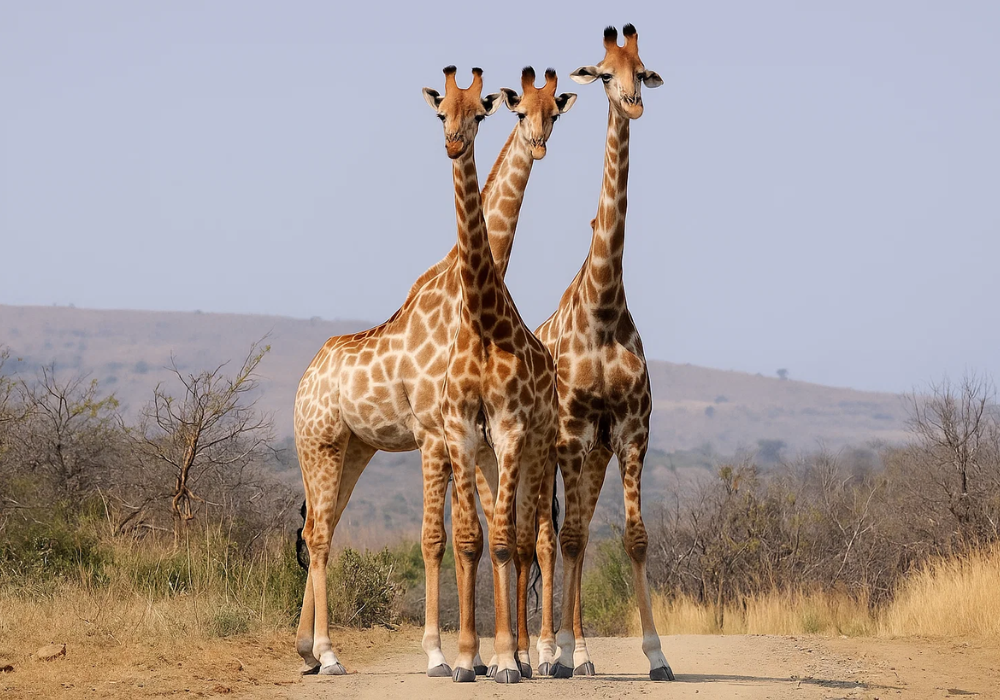
Cash in the Wild: My Safari Adventure Across Kenya with Only...

One Day Picnic Spot Near Pune - Adventure, Trekking and Natu...

One Day Picnic Spots Near Mumbai - Monsoon, Adventure, Beach...
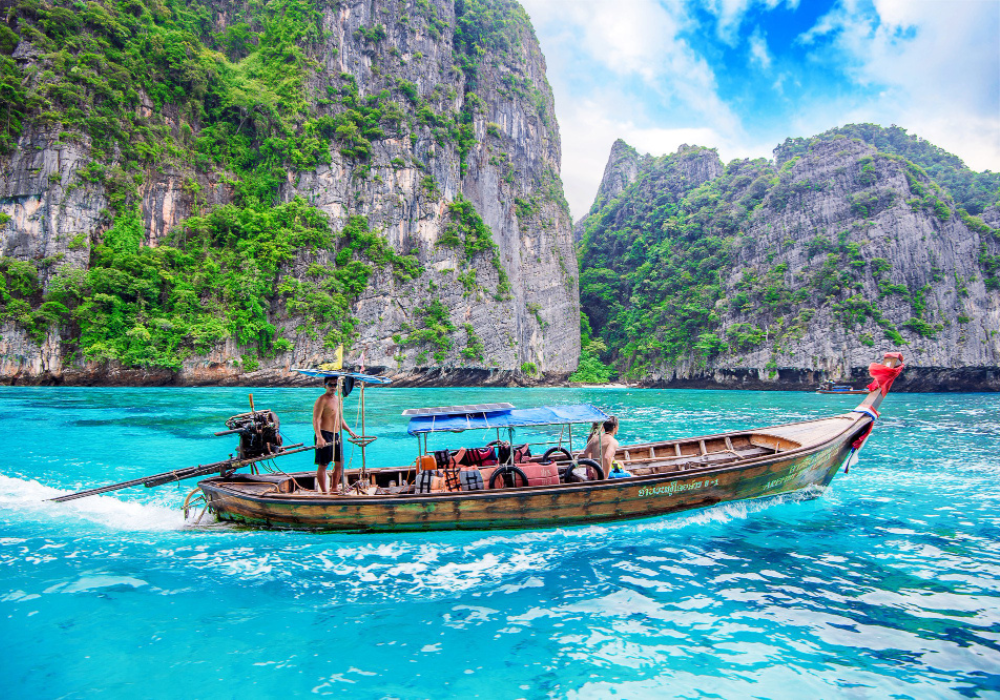
The Best Places to Go in Thailand in 2025
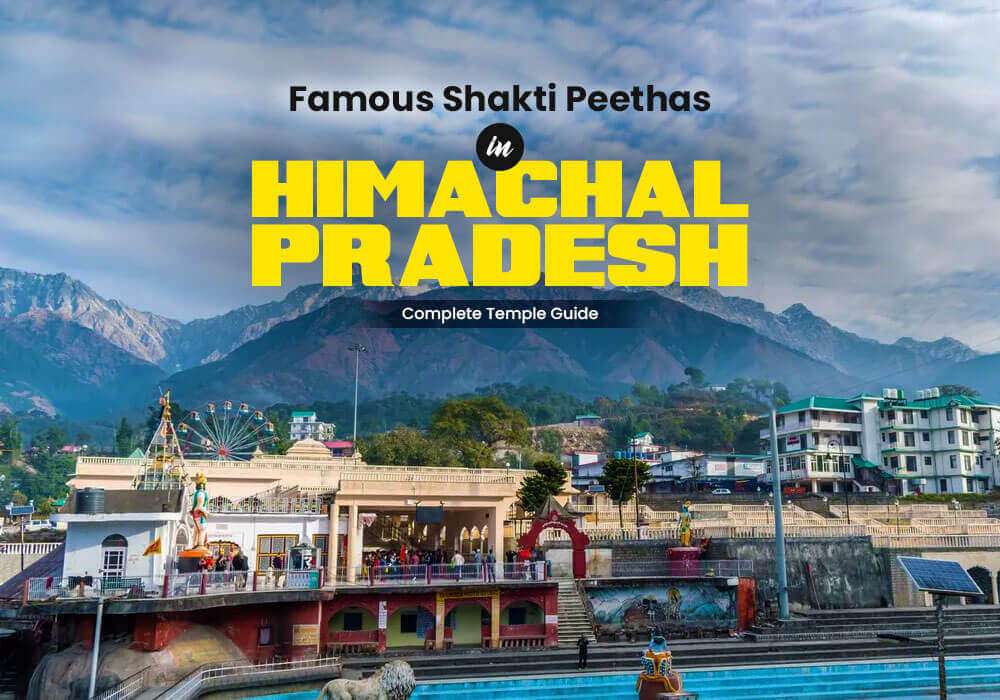


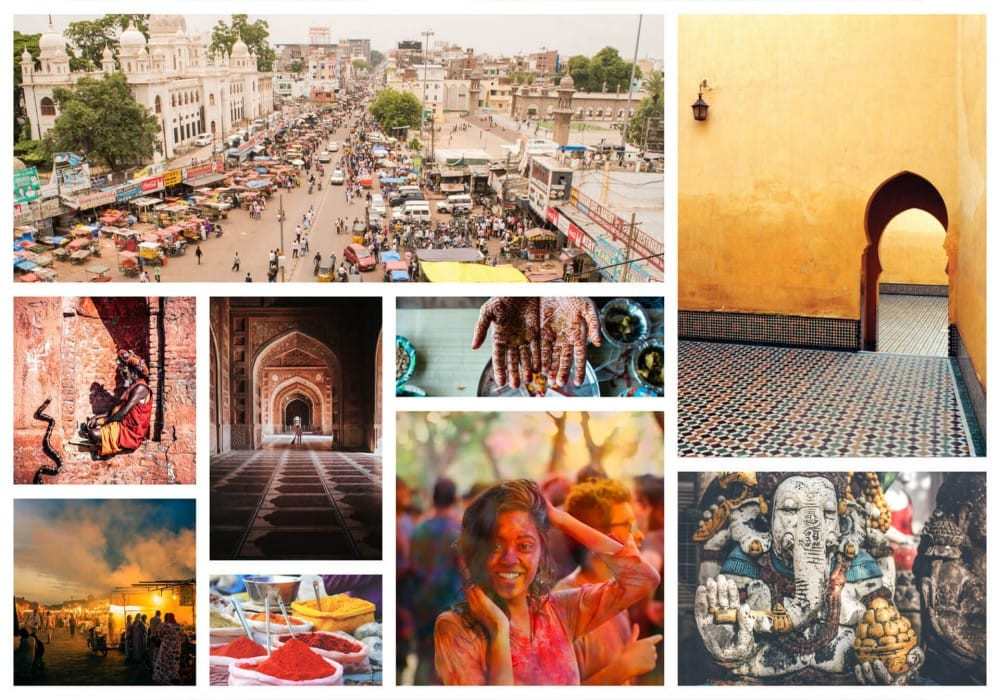



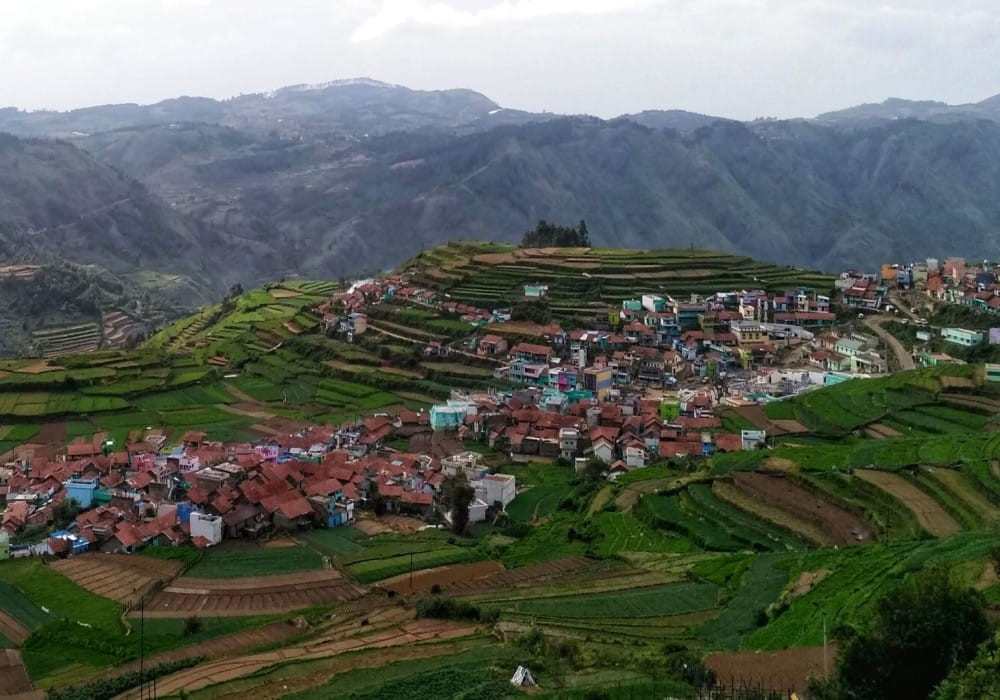



 (1).jpg)
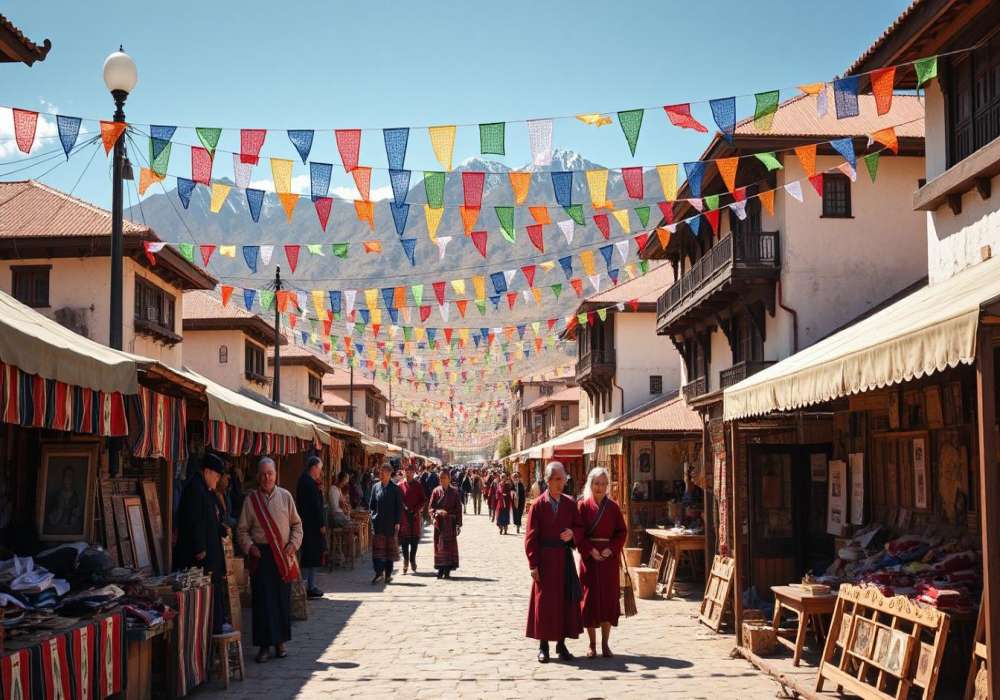

 Dubai
Dubai Malaysia
Malaysia USA
USA





